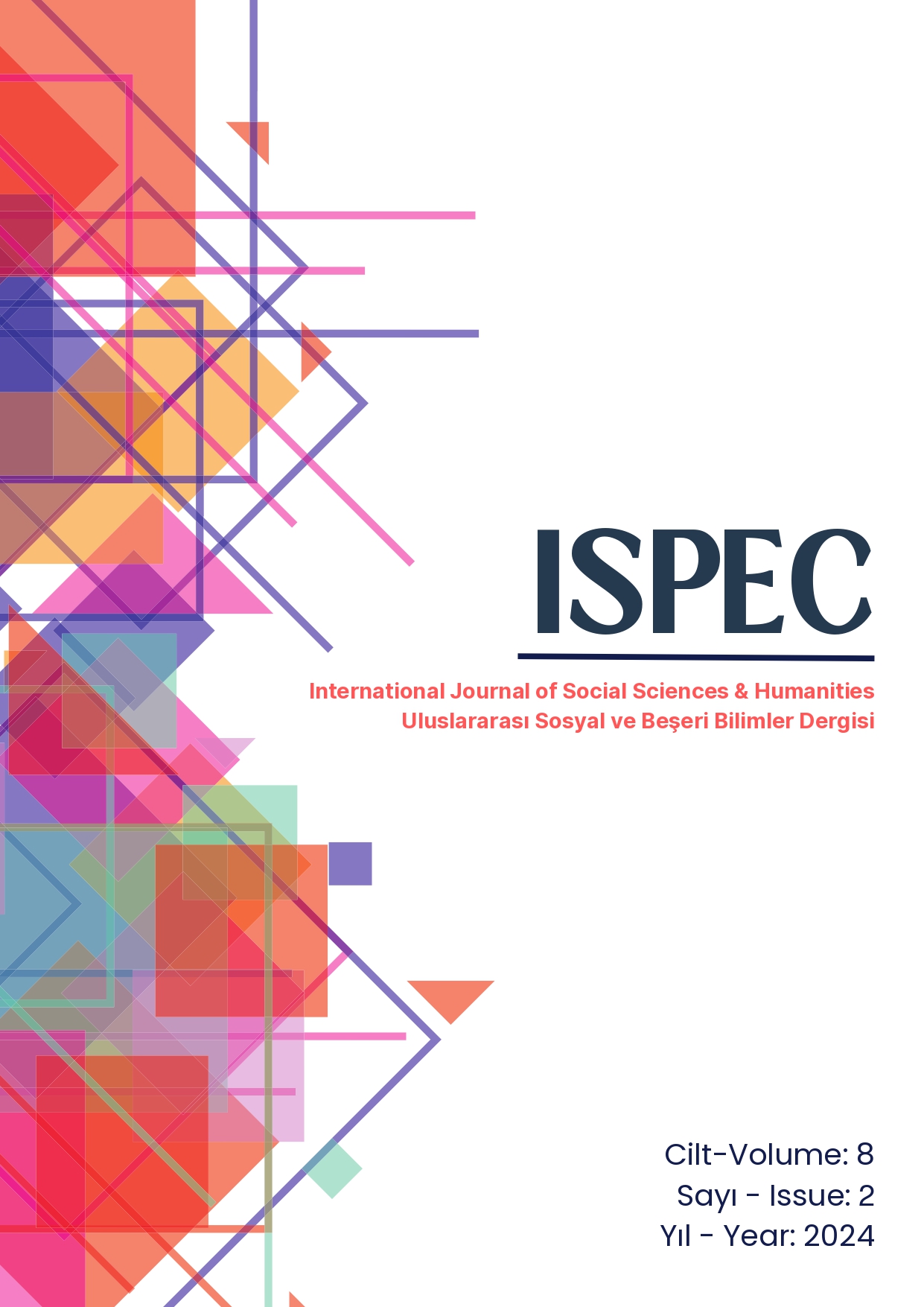A Systematic Review on Post Vaginismus and CBT Therapy
DOI:
https://doi.org/10.5281/zenodo.12518648Keywords:
vaginismus, cognitive behavioral therapy, genital pelvic pain/penetration dysfunctionAbstract
The purpose of this systematic review study is to examine the use of CBT therapy in individuals experiencing vaginismus disorder. In this study, the systematic review method was used and no field study or any scale was used. Experimental studies and randomized controlled studies, published in Turkish and English in Google Scholar databases between 2016 and 2021, and whose abstracts or full text can be accessed with the relevant keywords, are interpreted. This compilation study was carried out in two stages: February 2024 and May, 2024. As a result of the screening, 6 studies were considered. All studies discussed is randomized controlled studies. As a result of this study, it is seen that cognitive behavioral therapy is largely effective in vaginismus patients. The findings of this review suggest that cognitive behavioral therapy may be helpful in providing long-term lifestyle and behavioral changes, and cognitive behavioral therapy has been shown to be a therapy method that accelerates recovery and is an effective method in terms of achieving results in a short time.
References
Akpınar, E., & Saatçı, E. (2007). Case Report An Unconsummated Marrıage: A Case Report. Marmara Medical Journal, 20(3), 182-185.
Balci, H. (2014). Bilişsel davranışçı terapi ile tedavi edilen vajinismuslu kadınlarda ve eşlerinde tedavi öncesi ve sonrası benlik saygısı, özyeterlilik ve yaşam kalitesi düzeyleri.
Bazıar, P., Aboudı, A., Arıamanesh, F., & Keshavarz, L. (2021). Evaluation of The Effectiveness of Cognitive-Behavioral Therapy (Cbt) On Marital Intimacy and Satisfaction in Women with Sexual Dysfunction (Secondary Vaginismus) Referred to Medical Centers in Shiraz. International Journal of Pharmaceutical Research (09752366), 13(1).
Çeri, Ö. (2009). Vajinismus tanısı alan kadınlar ve eşlerinde temel bilişsel şemalar ile bağlanma stillerinin incelenmesi (Master's thesis, Sosyal Bilimler Enstitüsü).
Dümen, G. Vajinismus tanısı alan ve almayan kadınlarda öz-duyarlık ve benlik saygısının incelenmesi (Master's thesis, Sosyal Bilimler Enstitüsü).
Kabakçi, E., & Batur, S. (2003). Who benefits from cognitive behavioral therapy for vaginismus?. Journal of Sex &Marital Therapy, 29(4), 277-288.
Eserdag, S., Kurban, D., Yakut, E., & Mishra, P. C. (2021). Insights into the vaginismus treatment by cognitive behavioral therapies: Correlation with sexual dysfunction identified in male spouses of the patients. Journal of Family & Reproductive Health, 15(1), 61.
Mutlu, E. A., & Karlıdağ, R. (2021). Factors affecting the recovery time in vaginismus. Sağlık Akademisi Kastamonu, 6(1), 52-63.
Omidvar, Z., Bayazi, M. H., & Faridhosseini, F. (2021). Comparing the effectiveness of mindfulness-based cognitive therapy training and cognitive-behavioral therapy on sexual satisfaction of women with vaginismus disorder. Journal of Fundamentals of Mental Health, 23(4), 267-271.
Özdel, O., Tümkaya, S., Levent, N., Atesci, F. Ç., Oğuzhanoğlu, N. K., & Varma, G. Bilişsel davranışçı yöntemlere dayalı cinsel terapinin vajinismuslu kadınlar ve eşlerinin cinsel sorunları üzerindeki etkileri.
Öztürk, C. Ş., & Arkar, H. (2017). Vajinismuslu çiftlerde bilişsel davranışçı terapinin cinsel doyum, evlilik uyumu, depresyon ve anksiyete belirti düzeyleri üzerine etkisi. Türk Psikiyatri Dergisi, 28(3), 172-80.
Taştan, K., Yoruk, N., & Memet, I. Ş. I. K. (2021). A Comparison of the Effectiveness of Hypnotherapy and Cognitive Behavioral Therapy in the Treatment of Primary Vaginismus. Konuralp Medical Journal, 13(3), 536-541.
Ter Kuile, M. M., van Lankveld, J. J., de Groot, E., Melles, R., Neffs, J., & Zandbergen, M. (2007). Cognitive-behavioral therapy for women with lifelong vaginismus: Process and prognostic factors. Behaviour ReSearch and therapy, 45(2), 359-373.
Downloads
Published
How to Cite
Issue
Section
License
Copyright (c) 2024 ISPEC International Journal of Social Sciences & Humanities

This work is licensed under a Creative Commons Attribution-NonCommercial-NoDerivatives 4.0 International License.






